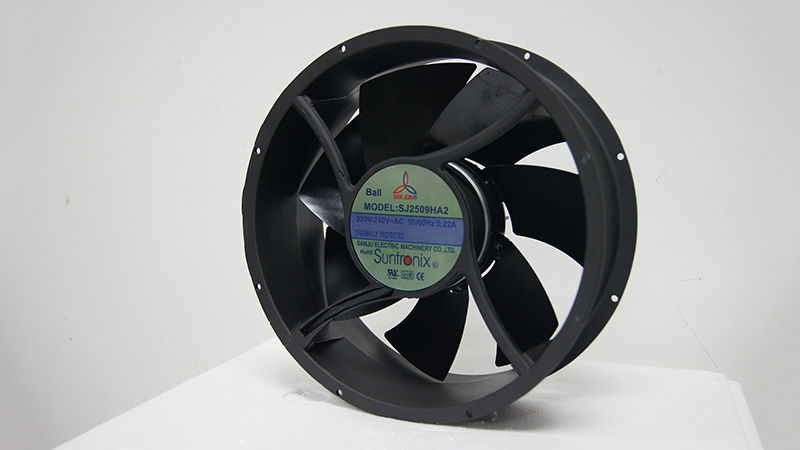──Aug 23, 2018Detailed explanation of design steps of TaiWan SAN JU International Electrical Machinery CO.,LTD. cooling fans
As is known to all, the heat dissipation fan uses forced heat convection to dissipate heat.with its own guiding function, it allows air to flow in a certain way, thus achieving the effect of heat dissipation. However, as the application of fans and the ambient temperature continue to change, fans with different rotational speeds are sometimes required to meet various demands.therefore, many manufacturers have designed and produced various kinds of cooling fans.this time explain in detail the design steps of TaiWan SAN JU International Electrical Machinery CO.,LTD. cooling fans .
The design steps of the cooling fan are divided into the following steps:
step 1:
The design of the cooling fan first needs to measure the relationship between air volume and wind pressure.it is very difficult to measure the characteristics of air flow.currently there are two common ways to measure air pressure and air volume, one is wind tunnel test, the other is double box method. The air volume and static pressure characteristic specifications are measured by using a double-box method.the air density is adjusted by using the variable exhaust system of the double-box method.opening the nozzle immediately will cause a sharp change in static pressure and air volume.then, only the pressure data on each static pressure meter need to be read.
Under standard atmospheric pressure and fixed operating voltage and frequency, the static pressure is expressed as a function of air volume. The static efficiency of the cooling fan is equal to the volume of the air volume multiplied by the static pressure and divided by the input electric energy. The radiating fan comprises a motor, fan blades and an outer frame, so the efficiency of the radiating fan comprises the motor efficiency of the motor and the air flow efficiency of the fan blades and the outer frame.

step 2:
All system impedance/system characteristic curves of the cooling fan when air flows, the air flow will encounter the obstruction of internal parts of the system in its flow path, and its impedance will restrict the free flow of air. The change in pressure is the measured static pressure, expressed in inches of water. In order to confirm the cooling wattage of each slot row, the system designer or manufacturer must not only have the effective fan characteristic curve of the cooling fan to determine its maximum air volume, but also know the change of the system wind resistance curve. The internal parts of the system will also affect the loss of wind pressure. This loss varies with the air volume, the so-called system impedance.
In addition, the intersection of the system operating point system characteristics of the cooling fan and the fan characteristic curve is called the system operating point, which is the optimal operating point of the cooling fan. At the operating point, the change slope of the cooling fan is the smallest while the change rate of the system characteristic curve is the lowest. Special attention should be paid to the optimization of the static efficiency ( air volume × wind pressure ÷ power consumption ) of the cooling fan at this time.
TaiWan SAN JU International Electrical Machinery CO.,LTD. warm tips:the design steps of the cooling fan will be shared here.in addition, we should pay attention to keeping the air flow unobstructed as far as possible during the design.the air inlet and air outlet will be kept unblocked.the steering flow of the cooling fan will pass through the system vertically to ensure the smooth air flow and improve the cooling efficiency.
TaiWan SAN JU International Electrical Machinery CO.,LT.D was established in 1988.in the past 30 years, they have been dedicated to the research and development, manufacture and sale of AC, DC and EC series centrifugal cooling fans as an integrity enterprise. Serve many successful enterprises both at home and abroad, and export agents are distributed in many countries in the world. Welcome customers to call us for consultation.Taiwan telephone number: + 886-2-25427722 , Shenzhen consulting hotline: 0755-2803-5670。




